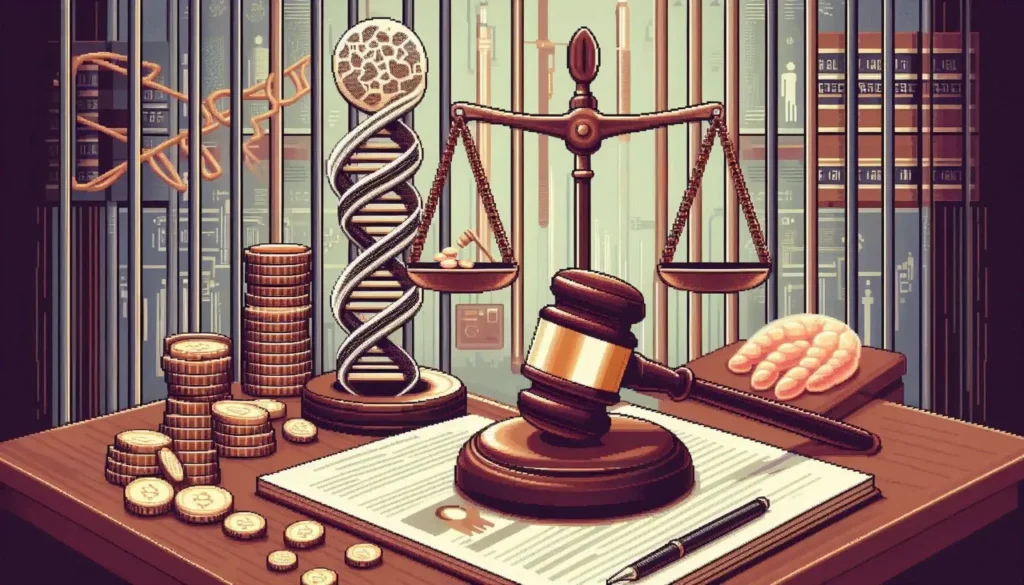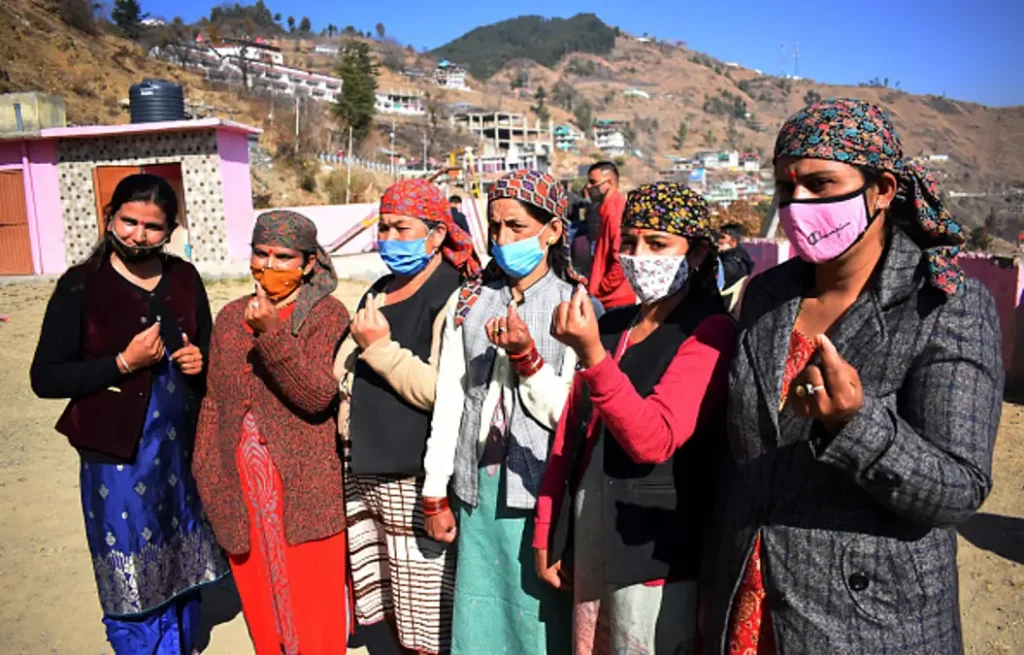“Aparajita Bill” Road to Justice, Challenges and Opportunities Implementing Women’s Protection Laws
- Author (s) Megha Saha

Table of Contents
ABSTRACT
Rape has been a gruesome crime against the woman and children. Women have been subjected to various violent suppressions for ages. Rape has been one of the most degrading and inhuman crimes on the earth which takes place near about every few minutes. From the observations made from the historical reference, women have always been objectified to satisfy their sexual pleasures and desires, ancient history has shown us how women have been victims of wartime sexual outbreaks of violence.
In this article, you will get a brief analysis of the evolving problems of Rape the background of the case which lead to the passing of the Aparajit Bill, how women’s safety has become essential in society, What the punishments did the Bill enhanced, and its applicability. The provisions of the Bill are discussed and differentiated for better understanding. An empirical study was also initiated to ascertain people’s opinions on Fastrack courts for the speedy disposal of Rape cases in India and whether is there any requirement to amend the Bharatiya Nyaya Sanhita concerning the Rape provision. How can moral Policing be more impactful in the decline of the Rapes in India and will also discuss the challenges that can be faced while adopting the new Bill.
Keywords: Aparajita Bill, Anti-Rape laws, Justice, R.G. Kar Medical College, State Government.
INTRODUCTION
Rape is the most gruesome offence to the mankind, which deprives the women their dignity and drags them backward in the society in the cost of others sin. It is a form of sexual assault that is non-consensual in nature. The rate of reporting, trial and conviction of the rape offenders are critical and exhaustive, and is subjected to multiple impediments like the case need to be proved “beyond reasonable ground”, further the time manifested for running of these trials are normally stretched, which in return increases the agony of the victim specially to the category of “victims with no guilt” the classification provided by Mendelson in his study of victimology. The reporting of the cases vary a lot upon the jurisdiction where the offence is committed, it is peculiarly observed that the reporting of the cases are more in urban areas than in rural areas, as the prevalence of social stigma is far greater in the close-knit rural society than the urban one.
Lack of consent becomes the key essence of commission of rape, a valid consent can be understood as “informed approval, indicating a freely given agreement”, it is presumed that consent should just not be verbal consent and if any resistance is created it would be considered the breach of consent. A statistics report provided by the Rape, Abuse, & Incest National Network states that 7 out of 10 incidents of sexual assault is mostly done by the predator who is already acquainted with the victim. The risk factor of rape can show variation in different ethnicities.
BRIEF OF THE R.G KAR MEDICAL COLLEGE RAPE CASE:
In the recent case of R.G. Kar, medical college and hospital in Kolkata, on 9th August, the city encountered a vicious or dreadful sight, in the chest speciality ward, where a student and intern of PG was been brutally raped and murdered. The lady after providing her services as a professional for 36 hours of laborious work, she was conspiringly sent to the seminar hall for the purpose of taking a rest, she was attacked by a gang of predators. As per the article of Mint1 and report of India Today, over 14 injuries were detected across her head, face, arms, finger, neck, and genitals which indicated forceful penetration and sexual assault. The cause of death was ascertained as “manual strangulation associated with smothering”. The report further elaborated that the post-mortem report confirmed that the cause of death was homicide.
It portrayed possible sexual assault, but there was a lack of concrete evidence to support the said fact, there was proper evidence of “white, thick, viscid liquid” in the genitals of the victim. The assistant superintendent via a phone call informed the victim’s family saying “Yes, please listen… we were repeatedly telling you before… your daughter… may have… died by suicide… or, she may have passed away. The police are here. All of us from the hospital are here. We are calling you to ask you to come down quickly”. The FIR was delayed which also contributed to the stressful situation. The entire city was awoken with rage, and protest for justice, many reporters also termed this as Nirbhaya 2.0 and there were several comparisons between the both cases. There were multiple efforts made by the former Principal Sandip Ghosh to tamper with the shreds of evidence on the hospital premises. The junior doctors, medical professionals, and the common people started to aggressively demand relief.
The accused Sanjoy Roy, a civil volunteer of the welfare wing of Kolkata police was alleged to be the predator who got inside the seminar room near midnight and committed the rape and murder of the victim ruthlessly, through the investigations it was found out that he was drinking with his friends and after that, he went to a red light area in Sonagachi for some sexual pleasures, but for some unknown circumstances, he retreated from there and went back to the hospital, he watched sexual content and being charged up with intense lust, roamed around the hospital for a suitable target. The victim being vulnerable at that time was attacked by the predator. Referring to the predator’s brief history it is clear that he was not a first-time offender, there were multiple cases of sexual harassment, stalking, and domestic violence against his 4 wives were registered at different police stations.
This person with the use of his influence got access to the critical medical wards, he was also alleged to have indulged in acquiring profits from the patient party for procuring beds in the hospital which was also the source of side income. To take control of the situation the Supreme Court took Suo Moto cognizance on 20th August 2024. Though the case is still pending the apex court, ordered for exhaustive investigation, asked for the cause for the delay in FIR, and noted the negligence of the institution, the court also ordered the doctors to get back to work with the assurance of justice to be served. The autopsy report though videographed, lacked professional accuracy, and denoted that it was conducted in hast.
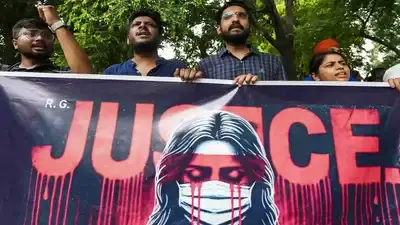
RESEARCH QUESTIONS:
- What are the lacuna in society as a whole or contentions that led to such heinous crime like Rape?
- What could be the possible retributions to curb sexual offences? We will be comparing this case with similar cases for a better understanding of criminology.
BACKGROUND OF RAPE IN INDIA:
Women have been subjected to various violent suppressions for ages. Rape has been one of the most degrading and inhuman crimes on the earth which takes place near about every few minutes. From the observations made from the historical reference, women have always been objectified to satisfy their sexual pleasures and desires, the ancient history has shown us how women have been victims of wartime sexual outbreaks of violence. Women were treated as property in a patriarchal setup which has always leashed women for their selfish motives, with the course of time, an urbanized approach was inculpated and modernization was accepted with Westernised culture, then the women who adopted to such an atmosphere were a target of the stereotypical mindset groups who found out the reason to satisfy their sexual urges and justifying it boldly through slut shaming the victims by the length of their clothing.
In the post-20th century, the world has seen the most barbaric or beastly sexual violence on women, children, and even men. India has eminent examples that show horrific scenarios of India’s daughters like in [Tukaram and another V. the state of Maharastra(1970)]2 which gave a starting point in the anti-rape laws in India, this judgment was highly criticized as marked as a black day for women empowerment and there was an outcry of protest and with the appeal, there was an amendment which included “fear of hurt or death” in section 375 of IPC. Followed by many other cases which led to several precedents and amendments in cases like[ State of Punjab V. Gurmeet Singh (1996)]3, where a girl of 16 years was raped, Justice J.Anand explained the effect of rape as “rapiest not only violates the victim’s privacy but her personal integrity, but inevitably causes serious psychological as well as physical harm in the process. Rape is not merely a physical assault it is often destructive of the whole personality of victim.
A murder destroys the physical body or personality of the victim. A murderer destroys the physical body of his victim a rapist degrades the very sole of helpless female”, [Mukesh and another V. State for NCT of Delhi (2012)]4 was marked as the most dreadful case where a student was been gang-raped and unnatural sexual activity was observed thus changes in the definition were done and capital punishment to the rapist was given for the first time and the doctrine of “rarest of rare” case was applied as lead down in [Bacchan Singh V. Union of India]5. Further in [Independent Thought V. Union of India (2017)]6 which raised a question of marital rape, there have been more evolutions in the rape culture in society, and as time passes by the intensity of the crime is seen. Despite the development of the legislation, there is no end to it. The Kolkata episode of the rape was a clear picture of an unsafe zone even for the doctors. The safety and security of the doctors were compromised in the “safest city” itself.
WHY DID THE “APARAJITA BILL” COME INTO PLAY?
This bill was the aftermath of the R.G. Kar Hospital and Medical College, rape case the State government after that dreadful incident was of the opinion that some centralized law for rape should be brought about to address the current situation. The aim was to deliver rapid justice to the rape victims and stringent punishments should be undertaken. The Chief Minister of West Bengal wrote two letters to the Prime Minister, proposing a change in the central law, which in the case did not provide for any satisfactory result, and after that, the State Government announced an Anti-Rape Bill known as the “Aparajita Bill”.
A special Assembly session was set and the Bill was tabled before the assembly and was passed unanimously. The meaning of the word “Aparajita” signifies “undefeated” therefore the bill also upholds the very essence and remains undefeated and was approved by the governor and sent to the president for final assent. The new Bill seeks to amend parts of the Bharatiya Nyaya Sanhita, Bharatiya Suraksha Sanhita, and the Protection of Children from Sexual Offences Act and would be applicable in India.
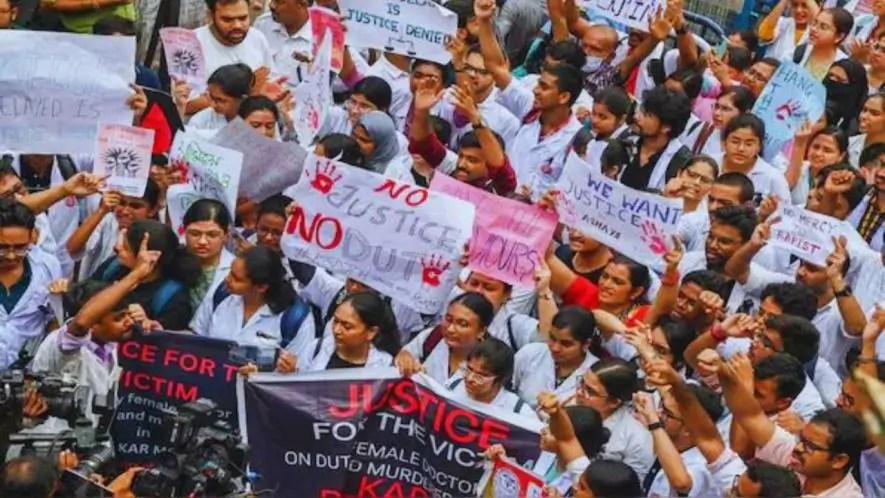
APARAJIT WOMEN AND CHILD BILL WEST BENGAL CRIMINAL LAW AND AMENDMENT BILL, 2024:
“Aparajita Woman and Child Bill West Bengal criminal laws and Amendment Bill, 2024.” The principle behind setting forth this bill was to create a safer environment for the women and children in the state. To achieve such an objective there should be enhancement of the existing punishment, and more stricter approach should be taken.
The Bill narrates the changes which should be brought about in the existing Bharatiya Nyaya Sanhita:
- For the offence of rape as per section 64 of BNS, which prescribes rigorous imprisonment of !0years, which may extend to life imprisonment to be enhanced to life imprisonment or death with a fine. This bill enhances and increases the scope of death punishment in cases of Rape.
- For the offence of rape where the victim is left in a vegetative state or where the victim dies. The punishment provided under BNS is rigorous imprisonment for at least twenty years, but which, may further extend to life imprisonment. The Bill supported mandatory death punishment for such accused, along with a fine.
- For gang rape under section 70(1) of BNS prescribes a punishment of twenty years, which may extend to life imprisonment. Whereas the Bill proposes life imprisonment for the remainder of the convict’s life or death penalty along with fine. They made sure the twenty years imprisonment be replaced by life imprisonment until the natural life of the convict.
- For the offence of disclosing a rape victim’s identity as per section 72 of BNS, the punishment is sought to be enhanced to imprisonment of 2 years and a fine. Whereas the Bill proposes publishing court proceedings in such cases and the punishment should be enhanced to 3-5 years imprisonment or fine.
- The Bill has also proposed the omission of certain sections in BNS such as sections 65(1), 65(2), and 70(2) relating to the punishment of the rapist based on age group, and mandate punishment based on gravity and not on the age criteria.
- Section 193 of the BNSS provides the timeframe for investigation is two months but the Bill sought to amend the period to 21days, it says that the investigation procedure should be completed within that in case of failure there must be proper reasoning noted in the case diary, for the delay and an extension not more than 15 days is to be given. This would facilitate swift investigation.
- The Bill also proposed amendment of section 346(1) of the BNSS so that inquiry or trial of the rape cases is completed within 30 days from the date of filing the chargesheet.
- The bill also introduced the concept of Fast-track courts by amending the provisions of BNSS and establishing a specified court section for speedy disposal of Rape cases, these courts will ensure the expeditious completion of inquiries or trials in these cases.
- The Bill further proposed that a Special Public Prosecutor should be appointed by the Government notification, and any lawyer appointed to this must have at least seven years of practice.
- The Bill also introduces a provision that initiates in creation of a special task force called Aparajita Task Force at district levels, headed by the Deputy Superintendent of Police. A female police officer will be appointed for the investigation of these cases, and any failure to perform the duty will be entitled to imprisonment of six months or a fine which may extend to Rs. 5000 or both.
IMPLEMENTATION OF THE BILL:
Criminal law being a subject matter of the concurrent list both the central and the state Governments have the power to make laws. The Central Government already had established laws upon it in BNS, BNSS, and BSA. The constitution of India states that when both the Central and State Governments have laws on the same subject matter and a conflict appears the state laws will be declared null and void and the Central law will prevail. Thus in such a case, it becomes binding on the Governor of the State for approval and forwarded to the President of India for assent, The President of India will then check that is it going against the Central laws and if satisfied, will give assent and then the law will be implemented in the State of West Bengal. Thus the amendment in the BNS and BNSS will be applicable in the state of West Bengal.
EMPIRICAL DATA REPORT:
A survey was been held via Google form to acquire public opinion on the current Rape Issue and its respective methods to curb the evil. The survey was divided into a questionnaire format while addressing the remedial measures that should be taken down sexual delinquencies. The form was filled by 56 people around the states, and belonging to different age groups. The data was obtained conventionally and the generalized opinion of the common man was obtained. The following questions were the prime observations taken in the survey:
- Fast-track courts should be initiated for Rape cases to deliver quick Justice.
About 75% of the people strongly believe that there should be the implementation of fast-track courts in every district so that rape cases can be dealt with at a faster pace. This will also lessen the burden upon the pendency of the cases and encourage speedy disposal. 16.1% agree with this fact, 7.1% are neutral and 1% disagrees.
Thus the amendment suggested by the Bill is quite acceptable across the states people are more inclined to speedy justice and this can be proved to be a logical and efficient way to restore safety in society. When the safety of women and children is our paramount consideration this can taken as a remedial measure for curtailing the sexual predators.
- Should capital punishment in “rarest of rare” be followed in cases of Rape?
About 78.6% of the people believe that capital punishment should be given in cases of Rape as Rape is one of the most grisly offence and should be considered for capital punishment, pertaining the victim is in a vegetative state or has been devoid of her life. A mandatory death punishment is demanded by people which the Bill clearly supports, keeping in mind the spirits of the common people of the Nation.
- Do you think a parent should keep their ward on Moral policing?
About 60% of people believe that moral policing would be helpful for maintaining a check on the wards and putting them in order from attempting any sexual offences. The notion behind this presumption is that if a child is taught from an early age the boundaries then it will be much easier for the women to thrive in society and for this reason, the parents should be aware of their ward’s limitations and society as a whole should be held accountable for shaping an individual irrespective of being educated or not the parents should be extra cautious, for example, the cases of Domestic Violence should also be stopped, so that the young ones do not inculcate the violent nature of the father thinking himself to be in an authoritative position.
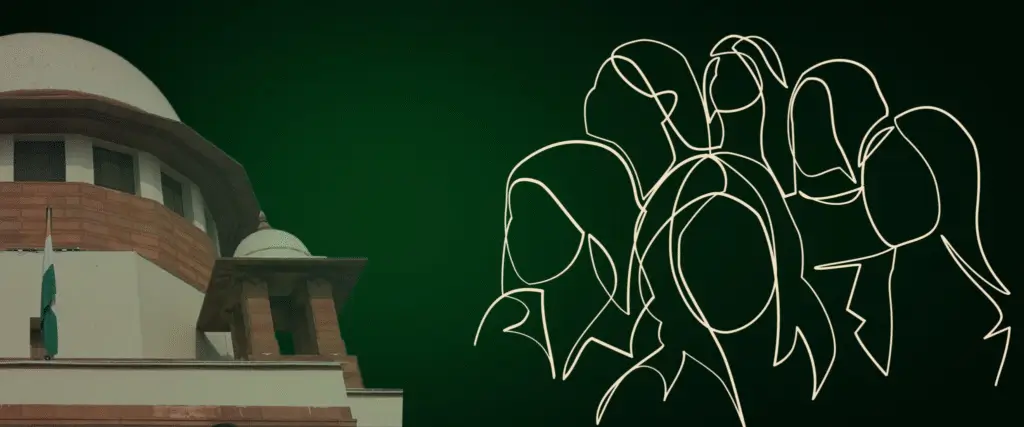
CHALLENGES:
There are two evident drawbacks to the Bill which are as follows:
Firstly, the Bill fails to bifurcate the gravity of the offence of rape, the aggravated form of rape and gang rapes in BNS and between penetrative sexual assault and aggravated penetrative assault in POSCO Act. Thus the Bill somewhere fails to differentiate the offences as per the scale. The basic essence of the principle of sentencing becomes vague and unreliable as the punishment must be proportionate to the gravity of offences and its extent has been limited, and as a result, certainty and fairness becomes a question of fact.
Secondly, the amendments aim at maximization of the punishment for all sexual offences. The central government adopted a similar approach while drafting BNS by increasing punishments, the Aparajita Bill further made demands to amend the punishments further enhancing it, whether the real issue is the punishment for these offences how far can the punishments retract a person from committing rape. The real problem is somehow going unnoticed in the political agenda and legislative amendments. To address something as wrong there should be knowledge of the consequences, which should be dealt primarily at this point. The State and Central governments should have a cooperative approach to educated the people ethically and morally. The government should set up reform mechanisms to eradicate the problem. In most cases, it is observed that the acts of rape are beastly, barbaric and inhuman, which clearly denotes the psychological intentions of the predator, this factor should be dealt with more stringently, and medical aid or psychological training should be given in such cases before the commission of a gruesome act.
According to criminologists like Beccaria, swift and certain punishment is more effective in preventing crimes than harsh penalties. Alarmingly, National Crime Records Bureau statistics reveal that over 90% of rape cases involve perpetrators known to the victim, including family members, relatives, and neighbours. Imposing severe punishments, such as death or prolonged imprisonment, may inadvertently silence victims. Fearing social pressure and familial consequences, they may hesitate to report the crime, allowing perpetrators to go unpunished and perpetuating a culture of silence and suffering7.
Thirdly, the bill eliminates the role of Judicial discretion, by making it binding on the judges to award minimum sentencing of life imprisonment, which in return lowers the scope of judicial independence. Though there have been a few derogatory judgements against the sentencing of rape accused where they have been sentenced to lower punishment based on, either perceived immoral character of the victim as in the case of [ Raju V. State of Karanataka]8 or due to peculiar facts of the case and conduct of the accused as in the case of [ Prem Chand and Another V. State of Harayana]9, but incidents like these are to be addressed impartially, but restrain on the Judicial discretion would tend to loss of confidence in the Judicial System.
Fourthly, the Bill also mandates that the investigating officer must be a woman personnel. Whereas only 9.95% of the total police force is comprised of women population as per the statistics of the Bureau of Police Research and Development. Thus implementation of the said requisite is a difficult task keeping in mind the geographical extent of the State as well.
Personal Analysis:
From the observations made and the articles reference few positive as well as negative insights have been obtained. This is not the first Bill that has been passed on Anti-Rape laws, the Disha Bill in Andhra Pradesh and two Skakti Bills of Maharastra, these bills were also passed unanimously by the state legislate but did not get the assent of the president, the efficiency of the bills was challenged. These bills also demanded death penalty for the rape convict, and stricter punishment which is way too similar to the Aparajita Bill, the fate of this bill is yet to be decided. The bill if brought into effect with minor alterations would prove to be the epitome of well empirical structure to eradicate social evils.
CONCLUSION:
India is a signatory to the UN Convention on Elimination of Discrimination Against Women (CEDAW) and is bound to follow the Principle that the State and Central Government should collectively respect, protect and fulfil human rights of women. The concept of due diligence works as a framework consisting of five P’s: prevention, protection, prosecution, punishment and provision of redress/reparations to victims. In deterring the predators, the due diligence play a pivotal role in ensuring the punishment. This Bill speaks about due diligence as a positive arena which will determine the effectiveness of a well-defined system to ensure fair and speedy justice. Most concerningly, the West Bengal government addressed some root causes of the sexual offences this initiated intended to bridge the gap between commission and conviction at a faster pace. The Parliamentary Standing Committee on Human Resource Development, addressed that despite existing laws, there is no significant change in the violence against women, if this bill can solve the problems it must be taken into consideration.
FOOTNOTES
- Mint Staff, Autopsy Report Reveals Critical Details in Kolkata Doctor Rape Case, Livemint (Aug. 19, 2024), (https://www.livemint.com/news/india/kolkata-doctor-rape-and-murder-case-autopsy-report-homicide-victim-rg-kar-medical-college-tmc-west-bengal-protest-bjp-11724042503079.html ). ↩︎
- Tukaram v. State of Maharashtra, (1979) 2 SCC 143, AIR 1979 SC 185. ↩︎
- Tukaram v. State of Maharashtra, (1979) 2 SCC 143, AIR 1979 SC 185. ↩︎
- Mukesh v. State of NCT Delhi, (2017) 6 SCC 1, AIR 2017 SC 2161. ↩︎
- Bachan Singh v. Union of India, (1980) 2 SCC 684, AIR 1980 SC 898. ↩︎
- Independent Thought v. Union of India, (2017) 10 SCC 800, AIR 2017 SC 3937 ↩︎
- Saumya Uma & Dhruv Madan, Aparajita Bill: A Populist Move Devoid of Due Diligence, the Wire, Sept. 10, 2024, (https://m.thewire.in/article/law/aparajita-bill-a-populist-move-devoid-of-due-diligence/amp ) ↩︎
- Raju v. State of Karnataka, (2006) 11 SCC 765, AIR 2006 SC 3336. ↩︎
- Prem Chand v. State of Haryana, (1989) 2 SCC 75, AIR 1989 SC 937. ↩︎
+919458479236
The role of genetics in criminal proceedings in Indian context is extensive. Genetics is derived from ancient Greek word “Genesis” which means generative… Continue reading
It took many years for women to get the equal opportunity as men in the society. Until late 20th century women had faced a lot of difficulties to enter into any field.… Continue reading
Democracy espouses its values of representation, equality, and freedom. It allows all citizens to participate in the political process and decision-making… Continue reading

